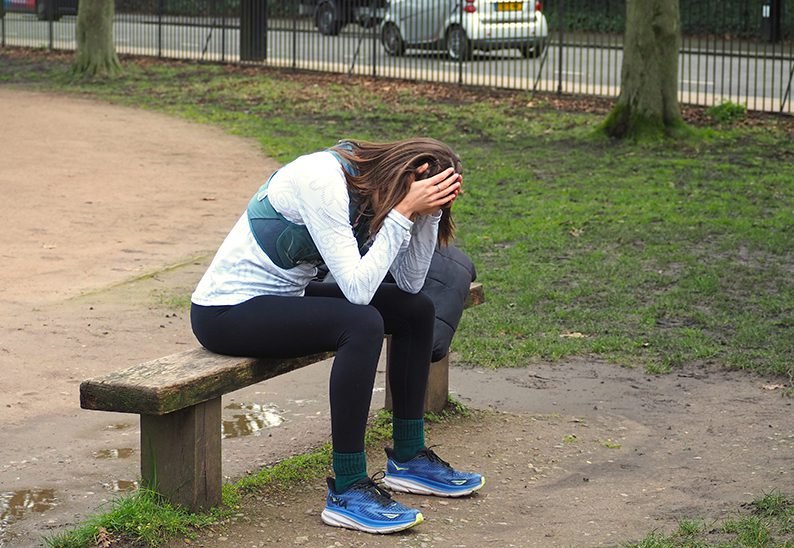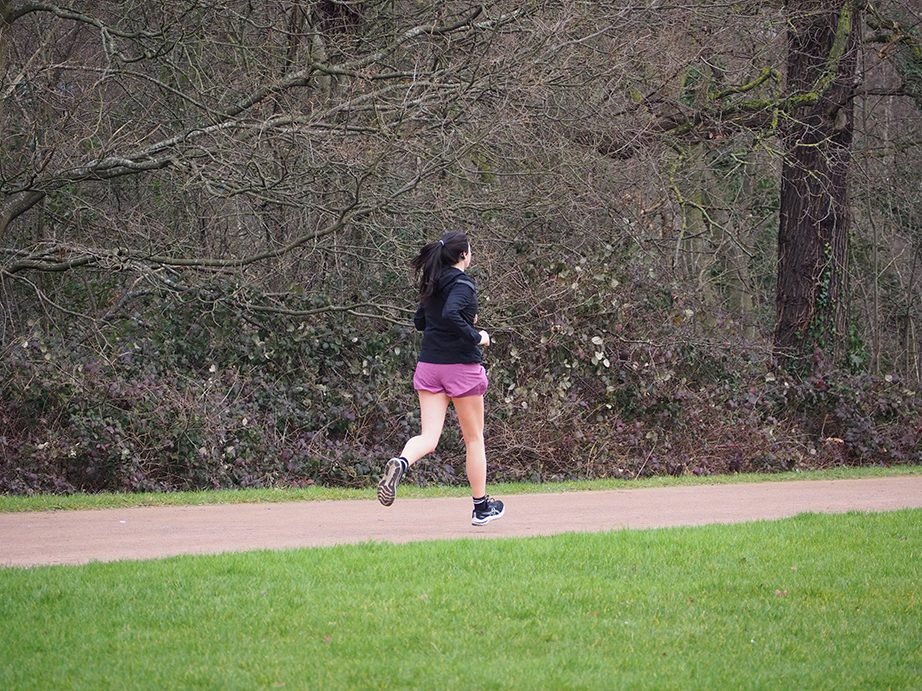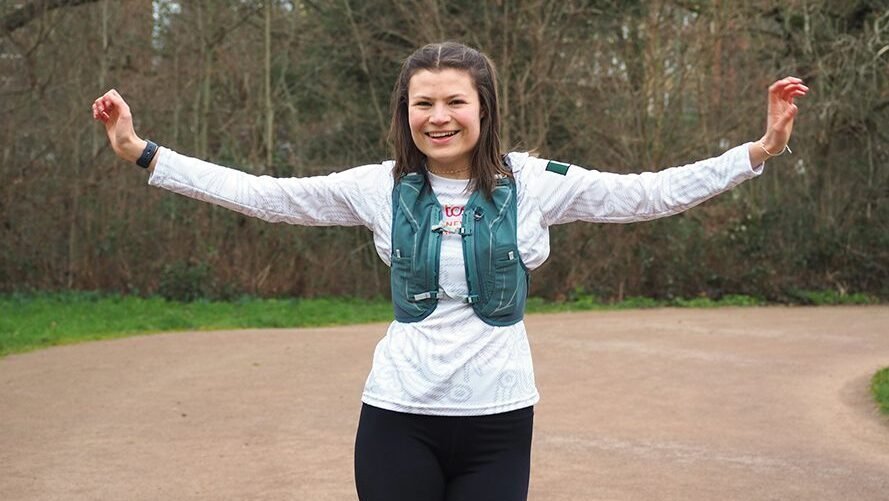Whether attending Tinder’s run club for singles or pounding the pavements solo, hordes of the heartbroken are replacing joggers for jogging – here’s why you should, too.
We’ve all seen that guy, pounding out his frustrations on a treadmill and weeping over a new pair of Hoka shoes. Or met the girl who’s been dumped and immediately signed up for a marathon. Something about heartbreak inspires us to change ourselves – the way we look, the way we eat, and the way we exercise.
A survey of newly heartbroken individuals found that 82 per cent exercised more post-breakup, 84 per cent said that exercise was an effective remedy for their broken heart, and 64 per cent maintained the rise in exercise level for over a year after the breakup. For the “dumpees”, improving mental health was the primary motivation for taking up exercise, while the dumpers cited physical health as their main goal. Either way, the stats don’t lie. Breakups can make you exercise.
Tinder hopped on the running train in June 2024, launching a series of singles run clubs. Similarly, TikTok has a niche of creators whose breakup was so bad they became marathon runners. So, why are crowds of heartbroken joggers taking to the pavements, lycra-clad, as if that will stop them from falling apart?
One reason is the growing sociability of running. For some, a post-breakup hobby helps to grow their community, whether it’s through joining a running club, signing up for a race, or building an online running community.
Leeds-based influencer Elle Forshaw (eleanor.forsure on Instagram) has gained nearly 90,000 followers on Instagram since starting her heartbroken marathon training.
It all started in 2023 when her relationship ended. Initially, she took up running to spite her ex. “It was something he didn’t think I’d be capable of,” she says. “Which felt like I wanted to prove it – partially to him, partially to myself.”
Prior to her breakup, she hadn’t thought about attempting a marathon, aside from an invitation to train with her cousin back in 2021. “I did the first 3k run of her training plan. I got about 10 minutes in, cried, and gave up.”
She adds: “The reason I wanted to run was because it’s something that I didn’t feel very good at, which came off the back of not feeling good about things in that relationship. I didn’t feel good as a person, and I didn’t feel good as a partner. When you come out of an unhealthy relationship, you don’t have a very strong sense of who you are and what your values are. Running helped that.”
Despite her self-proclaimed tortoise pace and lack of discipline, Forshaw finished the Manchester Marathon on 15 April 2024 after only 14 weeks of training. She attributes much of her achievement to the following she grew on Instagram, saying: “I assumed I would give up after a few weeks. It’s only because I amassed the following [that] I felt I couldn’t let people down. It was a really big personal achievement.”
George Mullis, an Exercise and Physical Activity Therapist, says: “The social aspect [of exercise] is really important as well. If you’re just doing it on your own, it can be mundane and hard to stick with, but if you’re with other people, you can share that experience.”
Even if you haven’t amassed a social media following, there are plenty of other ways to meet people through running. Several singles run clubs have materialised in the last few years, such as Tinder’s and the Your Pace or Mine run club (sweating is sexy now). But if running in a crowd isn’t your thing, running solo has benefits, too.

Smashing new goals – whether it’s a sub-3 half marathon or a 5k PB – can boost confidence and improve your overall self-esteem (likely to have taken a hit if you’ve just been dumped). Plus, running reduces stress and improves cognitive function, quite literally clearing your head with each stride.
Mullis says: “Exercise is an amazing tool for changing people’s lives. It can improve people’s physical function, but also their quality of life.”
Mullis’ clients come to him during difficult periods in their personal lives. Low on confidence and struggling with mental health problems. “Getting [the physical side] right enables them to improve their mental health,” he says.

Shalene Gupta, a Boston-based reporter, signed up for the Philadelphia marathon after her relationship ended. “[After my breakup], I felt like time just hung really heavy on my hands. I didn’t really know what to do with myself, and it felt like there was this big hole in the universe,” she says. “All this time that I’d spent with my partner and my partner’s social group was gone. So it was really nice to have something [like running]; I felt I was making progress. I had a structure and something to do. It made me feel like maybe I can get through whatever I’m going through.”
At first, she progressed “slowly and painstakingly” without seeing the physical benefits she’d expected. “I thought I’d get really fit and look like a gazelle but that didn’t happen. My legs got really strong, but I had T-Rex arms,” she says. Yet the mental health benefits far outweighed any physical ones for her. She added: “I used to wake up in the morning feeling anxious. Running provided a nice transition to work through that stress in a physical manner so I could sit down and concentrate on what I needed to do. It made me feel empowered.”
Whether you find the company you need or it’s the perfect opportunity for much needed alone time, running can provide freedom your ex never could. From the physical to psychological, running can lead to new paths of self-discovery for ourselves and help us move forward.
